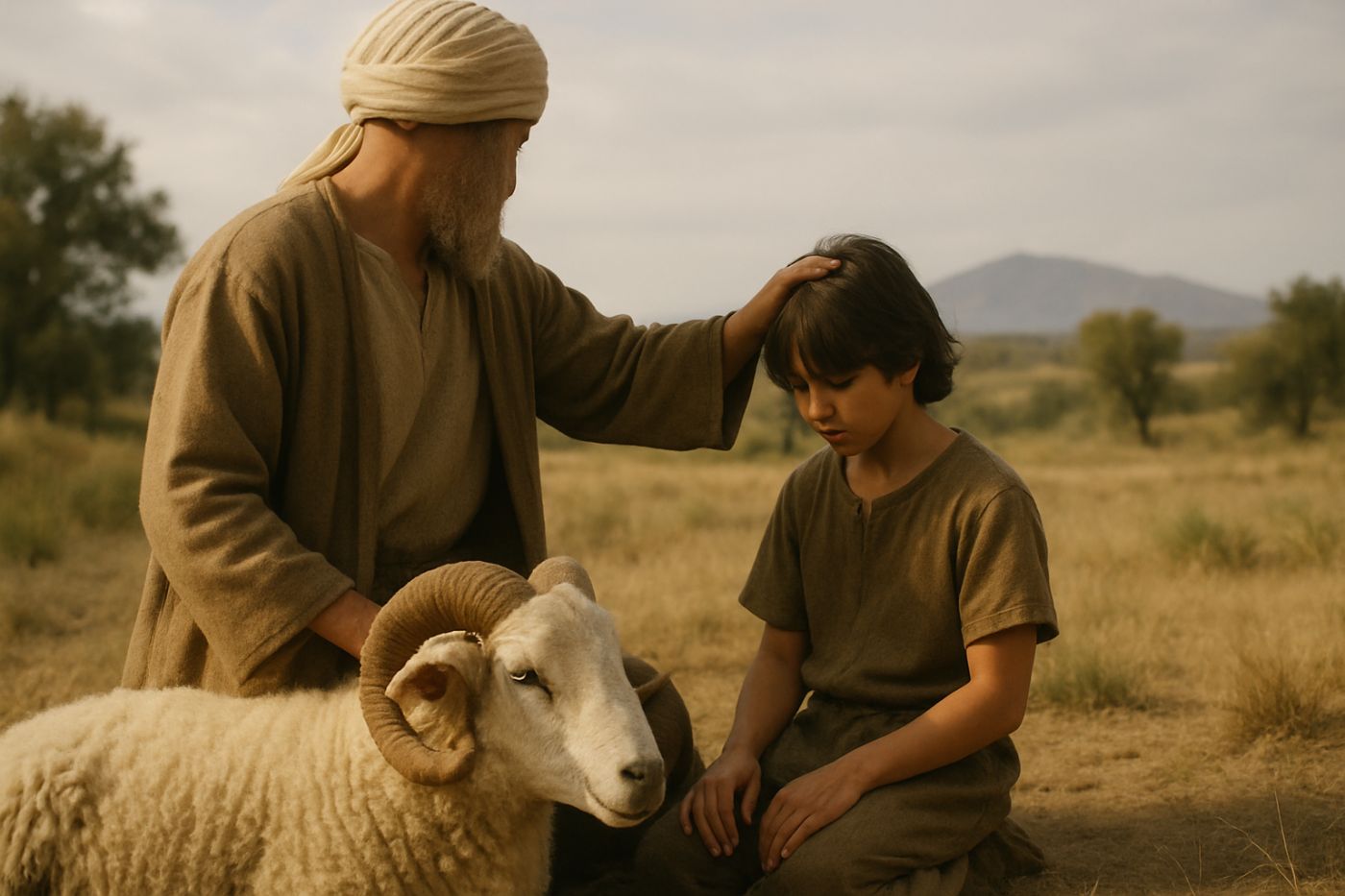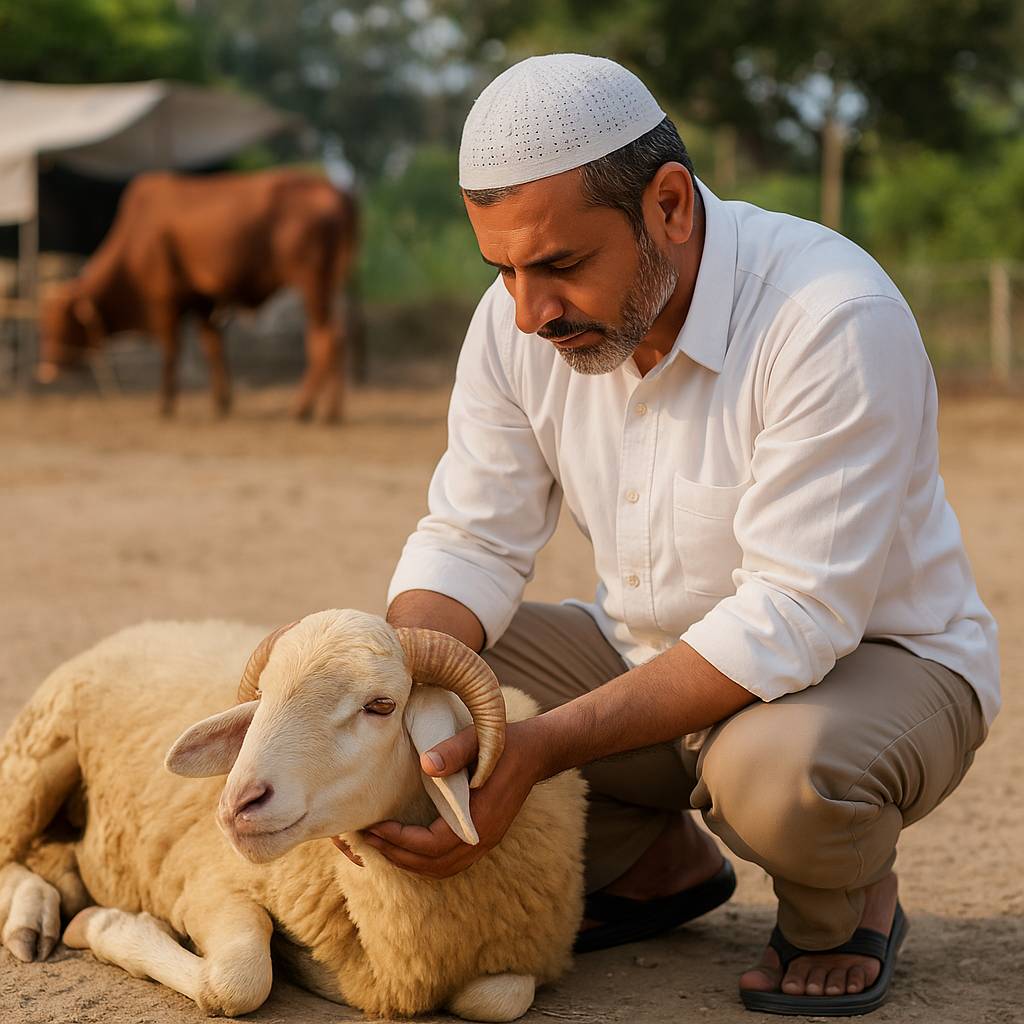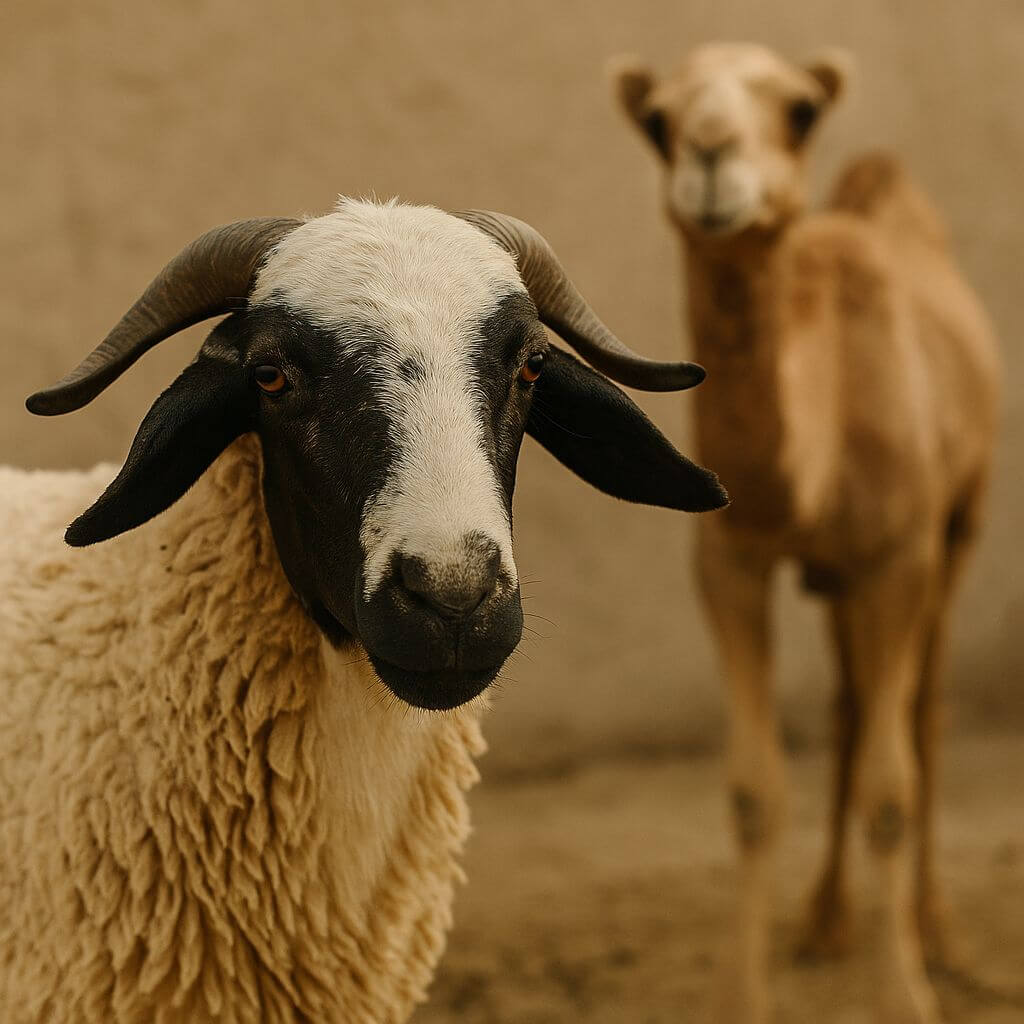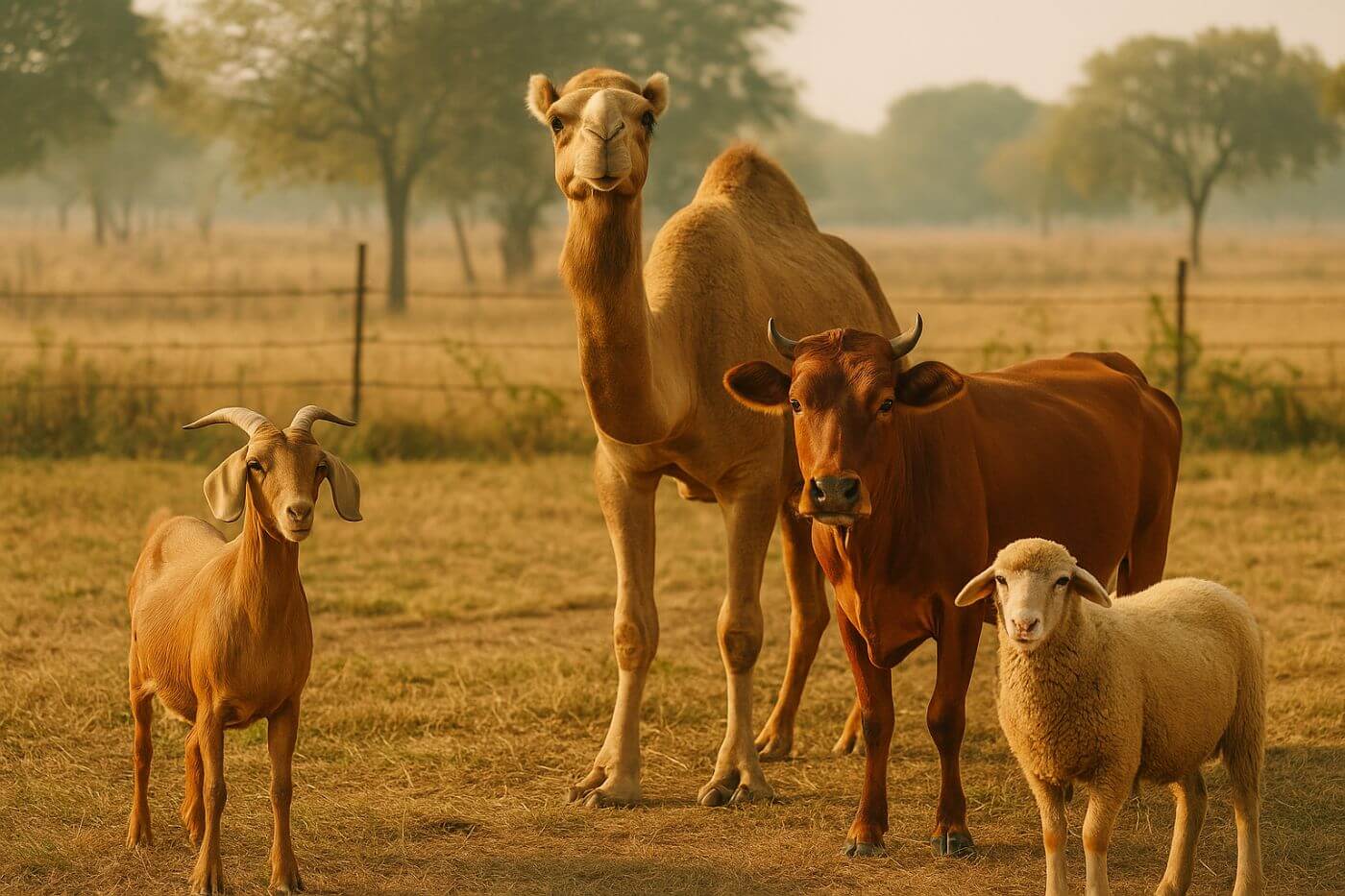
The Story of Prophet Ibrahim and the Origins of Qurbani
Qurbani, the sacrifice of an animal during Eid ul-Adha, is deeply rooted in Islamic tradition. It commemorates the unparalleled act of obedience and devotion shown by Prophet Ibrahim (peace be upon him), one of the most revered figures in Islam, Judaism, and Christianity.
Understanding why Muslims perform Qurbani requires reflecting on the profound story of faith and sacrifice that unfolded thousands of years ago.
The Command from Allah: A Test of Faith
Prophet Ibrahim, known for his unwavering faith, was subjected to numerous tests by Allah. Among these trials, none were as profound as the command to sacrifice his beloved son, Ismail (peace be upon him).
After years of longing, Ibrahim and his wife Hajar (Hagar) were blessed with Ismail in their old age—a miraculous and treasured gift. As Ismail grew, Ibrahim began receiving dreams commanding him to sacrifice his son.
Islam teaches that dreams of the prophets are direct revelations, not mere visions. Recognising the divine origin of the command, Ibrahim did not hesitate.
He approached his son with honesty and tenderness:
“O my beloved son, indeed I have seen in a dream that I must sacrifice you, so what do you think?“
(Surah As-Saffat, 37:102)
Displaying immense faith and maturity beyond his years, Ismail replied:
“O my father, do as you are commanded. You will find me, if Allah wills, among the steadfast.“
This interaction highlights the extraordinary submission of both father and son to Allah’s will—a submission built on complete trust and love for their Creator.
The Moment of Sacrifice and Divine Intervention
As Ibrahim prepared to carry out the command, he blindfolded himself to avoid wavering in his resolve. He laid Ismail down and moved the knife across his son’s neck, yet Allah intervened—miraculously, the knife did not cut.
Allah had tested Ibrahim’s devotion and he had passed. A ram was provided from heaven as a substitute sacrifice:
“And We ransomed him with a great sacrifice.“
(Surah As-Saffat, 37:107)
Through this act, Allah made it clear that He does not desire the physical blood or flesh, but the intention and purity of the believer’s heart.
Thus, the tradition of Qurbani was born—an enduring symbol of devotion, gratitude, and surrender to Allah.
The Deeper Meaning of Qurbani
Qurbani is not about the ritual slaughter alone. It is about:
- Demonstrating complete trust in Allah’s wisdom, even when it challenges worldly attachments.
- Reinforcing the values of compassion and generosity by ensuring that the blessings of Eid reach the poorest in society.
- Strengthening community bonds through acts of giving, sharing, and gratitude.
Qurbani teaches Muslims to be willing to sacrifice personal desires for the sake of higher spiritual principles.
How Muslims Perform Qurbani Today
During Eid ul-Adha, Muslims around the world sacrifice permissible animals such as sheep, goats, cattle, or camels, following strict Islamic guidelines:
- The sacrifice must occur after the Eid prayer on the 10th of Dhul-Hijjah and can be performed until the sunset of the 13th of Dhul-Hijjah.
- The meat is divided into three parts: one for the family, one for relatives and friends, and one for the poor and needy.
- The act must be carried out humanely, invoking Allah’s name at the time of slaughter.
The spirit of giving and compassion remains central. Through Qurbani, millions of people who might otherwise go hungry experience the joy and blessings of Eid.
How ARO Helps You Honour This Sacred Tradition
At the Australian Relief Organisation (ARO), we make it easy for you to fulfil your Qurbani in a way that honours the true spirit of Prophet Ibrahim’s sacrifice.
Through our Qurban International Hunger Relief Program, you can:
- Choose your Qurbani donation based on location and need.
- Trust that all Islamic guidelines are observed with transparency.
- Ensure your sacrifice reaches the most vulnerable communities around the world.
Every Qurbani donated through ARO directly impacts families struggling with poverty, hunger, and displacement.
Final Reflection
The story of Prophet Ibrahim and the origins of Qurbani offer profound lessons about faith, sacrifice, and compassion. As Muslims perform Qurbani each year, they renew their commitment to Allah and strengthen the bonds of community and charity.
This Eid ul-Adha, make your Qurbani meaningful. Donate today through ARO’s trusted Qurban International Hunger Relief Program and continue the legacy of faith and generosity that Prophet Ibrahim taught us.
Related Project: Qurban



